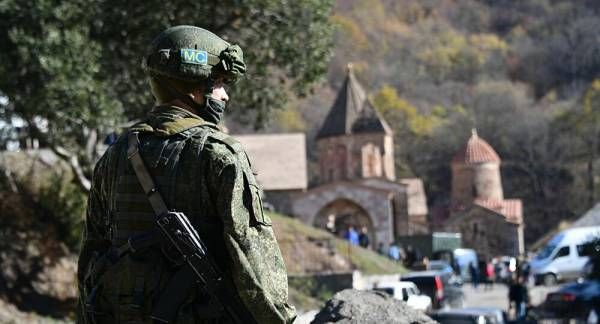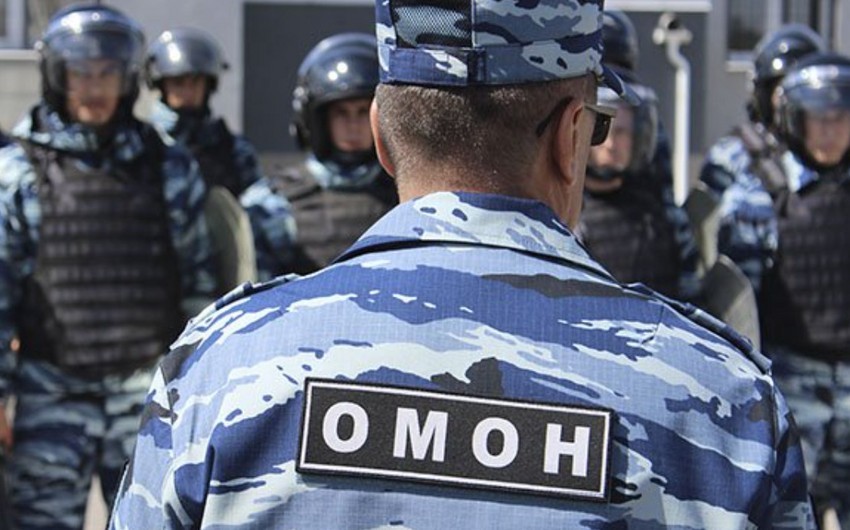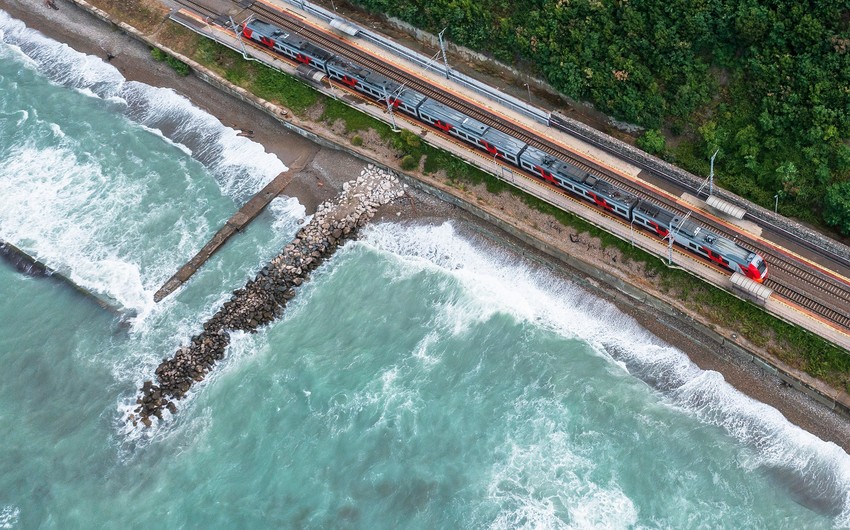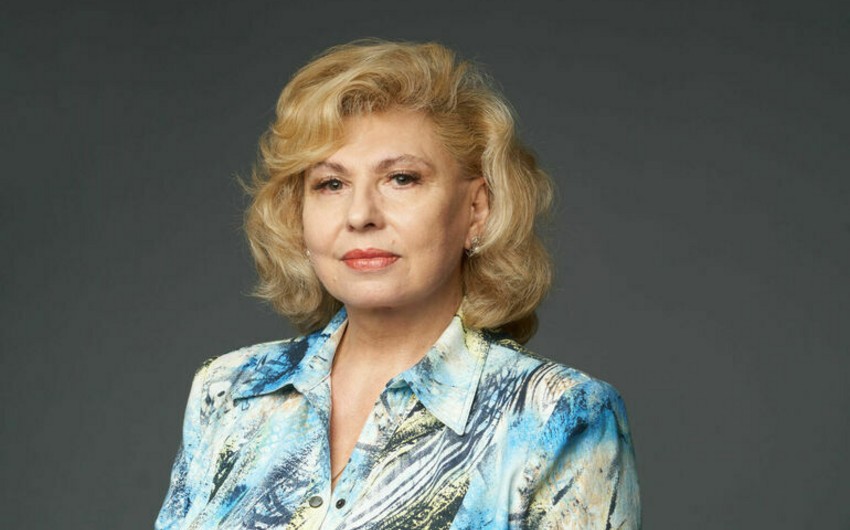The Second Karabakh War has led to new geopolitical circumstances in the region. As a result of war, not only Russia but also Turkey has gained a regional power in the South Caucasus. Some experts point out that Turkey and Russia will be the only actors to play main role in the determination of the fate of the region as well as contributing to the strengthening of peace, security and prosperity in there. Despite many efforts made by the United States and European Union to resume the negotiations over the settlement of the Nagorno-Karabakh conflict, they have been just observers of the processes.
Further to clarification of the issues about the future of the South Caucasus, Robert Cutler, expert on regional and global security, shared his views with Eurasia Diary. In his comments, R.Cutler touched upon the state of peace and security in the South Caucasus, the joint Turkish-Russian cooperation in enhancing regional security and future role of the US and NATO in the region.
Robert M. Cutler, a Fellow at the Canadian Global Affairs Institute, was educated at the Massachusetts Institute of Technology and earned a Ph.D. from The University of Michigan. He has been writing about European and Eurasian security for several decades and has held research fellowships at major universities in New York, Geneva, and Moscow.
- First of all, how do you assess the current situation in the South Caucasus in terms of peace and security?
- Despite the tragic destruction and loss of life occasioned by the recent military hostilities, the results of the Second Karabakh War open perspectives for improved peace and security in the South Caucasus. That is because the territorial integrity of Azerbaijan is now not just a legal principle but mainly an established fact, notwithstanding the presence on that territory of Russian peacekeepers, in accordance with the first trilateral (Azerbaijan-Armenia-Russia) declaration, agreed 10 November 2020, which contains nine important provisions. The second such declaration, agreed 11 January 2021, is aimed at implementing the ninth of those provisions, which concerns the unblocking of all communications in the region including transportation infrastructure.
A 30-year-old constraint on genuine security and cooperation among the countries in the region, and with their neighbours and the EU, has disappeared. Real possibilities to securitise the region have now opened. In particular, although there was never really a concrete possibility that Armenia might militarily threaten the Azerbaijan-Georgia energy corridor ("Ganja Gap"), nevertheless the terms on which the Second Karabakh War was concluded eliminate even the possibility of such an argument to that effect. Those terms also establish the basis for reconstruction and peace-building in the South Caucasus. One sees that the de-occupation of the territory of Azerbaijan is like the uncorking of a bottle that has long been under pressure. This process is already proceeding swiftly.
Beyond the practical work of postwar rehabilitation of the land and peoples, what is needed is face-to-face talks and steps toward bilateral cooperation between Armenia and Azerbaijan at the highest level of the political executive, and if at all possible, directly and without intermediaries or even the presence of third parties.
- Do you think that the outcomes of the Second Karabakh war led Russia's influence to decrease in the South Caucasus?
- It has to be said first of all that Russian influence and Turkish influence in the South Caucasus are not something new, since the cessation of military hostilities. It is therefore easy to exaggerate the significance of any present situation that is new in its particular features. To be sure, uninformed estimates made early in the conflict that expected military confrontation between Turkey and Russia have not come to pass, and were never likely to come to pass.
As to whether Russia's influence in the South Caucasus has decreased, it is necessary to say that despite the end of military hostilities, the situation is still fluid. It is difficult also to answer this question, because the context has changed, so the parameters for assessing Russian influence must also be adapted to the new situation. If one looks at the three countries in the South Caucasus, in Armenia Russia's influence has only increased (if that is possible) if it should wish its influence to increase. In Azerbaijan, Russia has troops in the country's territory for the first time in over 20 years, but this is somewhat in Baku's interest.
- The joint Turkish-Russian Monitoring Centre consisting of Russian and Turkish military staff has already started to operate in Aghdam region of Azerbaijan, missions of which are to control ceasefire and military operations in Nagorno-Karabakh. How would you assess the Turkish-Russian cooperation in terms of maintaining peace and security in the post-conflict zone?
- The joint Turkish-Russian Monitoring Centre seems almost irrelevant to the actual correlation of forces between Russia and Turkey in the region. According to reports, the Turkish personnel are not operational military but rather have principally administrative roles. Their presence at the monitoring centre could correctly be seen almost as symbolic.
The question of Turkish-Russian cooperation to strengthen peace and security in the South Caucasus goes beyond the establishment of the joint Turkish-Russian Monitoring Centre. It is not clear exactly what this cooperation might be. What is clear is that Russia has accepted that Turkey will play a greater role and has decided not to emphasize or draw attention to this more than is necessary.
Although Turkey and Russia may appear to be cooperating in certain ways, this does not exclude competition between them. I am not speaking here of a "kinetic" military conflict, even though they may have conflicts of interest that would play out in nonmilitary ways. For example, it is possible that Russia's enhanced position of dominance over Armenia, which some circles in Moscow seek to treat not as a client state but as a vassal state, will create the necessity for Armenia to open its border with Turkey, for simple reasons of the economic well-being of the population.
Turkey has already declared that with the de-occupation of the Nagorno-Karabakh region, there are today no obstacles to opening the border from the Turkish side. It is possible that Russian pressure against Armenia will create a situation where Yerevan will have to open the border with Turkey simply for domestic economic and transportation reasons.
- Please tell us, how do you evaluate the importance of the South Caucasus in the foreign policy of the Biden administration? And how do you think that the United States will have a focus on the settlement of the Nagorno-Karabakh conflict or it will leave the fate of the conflict in the hands of Russia again?
- Many commentators in Washington look forward to increased attention from the Biden Administration to the South Caucasus, but they could be somewhat disappointed. Biden himself has a history of being interested in Georgia, but American interests in the South Caucasus started to decrease in the first term of the Obama administration. Even the well-known strength of the Armenian lobby in Democratic Party politics in the US is, for the foreseeable future, unlikely to elicit greater interest from the new administration in the region.
However, it is not generally noted that toward the end of the Trump Administration, Washington was in fact increasing its interest in the South Caucasus. The ambassadors appointed to Azerbaijan and Georgia were relatively senior figures with long experience in the region. Official Washington had made statements encouraging the construction of the Trans-Caspian Gas Pipeline.
Certain individuals newly appointed in the State Department and National Security Council have a history of interest in the South Caucasus and/or the Caspian Sea region more generally, including Central Asia. However, their attention may be overwhelmed by the Biden Administration's preoccupation with Africa, the Middle East, and Chinaş
Therefore, the one possible exception could be more American attention to energy infrastructure in the South Caucasus and the Caspian Sea region in order to mitigate the increased Russian influence on Europe through its gas exports.
- In your opinion, what are the perspectives of NATO for the security and peace in the South Caucasus in future?
- That having been said, it is evident that the South Caucasus does not fall into NATO's geographical area of responsibility for collective defense. NATO never had any direct role in negotiations aimed at resolving the conflict in the Nagorno-Karabakh region. NATO's relations are conducted bilaterally with each of the South Caucasus countries, concerning the implementation of well-defined specialized programmatic cooperatio
Looking back at the South Caucasus, of course, one of the new elements in the situation is the explicit statement by US Secretary of State-designate Anthony Blinken that Georgia should be admitted to NATO if it meets the requirements. Of course, even in December 2016, NATO Secretary General Jens Stoltenberg declared that Georgia "has all the practical tools to become a member of NATO." However, this could be finessed by temporarily excluding the Russian-occupied territories of Georgia from the umbrella of NATO's collective defense. This would require amending the NATO Treaty’s Article 6 to exclude the Russian-occupied region temporarily from NATO’s Article 5 protection. There are historical precedents for this in the organization's history.
Objectively speaking, it may well serve Azerbaijan's national interests for Georgia to become a NATO member, simply because this would guarantee a certain stabilization of the geopolitical situation in Georgia, not to mention a further geostrategic balance against both Russia and Turkey (even though the latter is itself a NATO member).
Interviewed by Yunis Abdullayev









